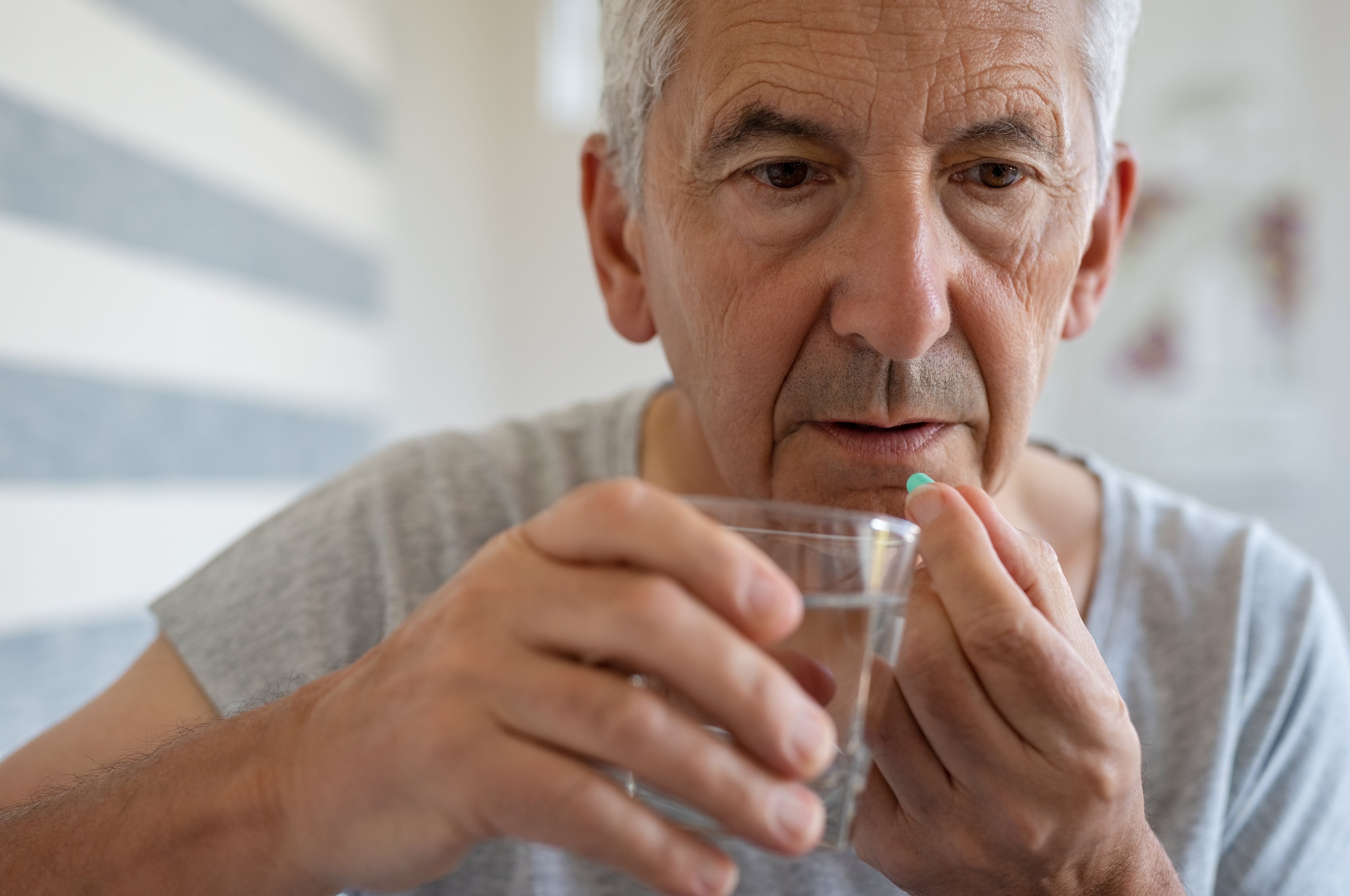Article
Diabetes and Heart Disease? Adherence to Antihypertensive Drugs Increase Life Expectancy in Frail Elderly Populations
When antihypertensive medications are taken with regularity, life expectancy is increased says a new study published in the American Heart Association Journal Hypertension.
Rido@AdobeStock_222437090

When antihypertensive medications are taken with regularity, life expectancy is increased says a new study published in the American Heart Association Journal Hypertension.
Although the conclusion at first seems obvious, researchers say that many clinical studies fail to include older patients who may be medically more frail, leaving clinicians to wonder if the benefits seen those studies are representative of their more fragile patients.
"We knew that high blood pressure medication was protective in general among older people, however, we focused on whether it is also protective in frail patients with many other medical conditions who are usually excluded from randomized trials," said Giuseppe Mancia, M.D., lead study author and professor emeritus at the University of Milano-Bicocca in Milan, Italy.
Researchers reviewed data on almost 1.3 million people aged 65 and older (average age 76) in the Lombardy region of northern Italy who had 3 or more high blood pressure medication prescriptions in 2011-2012. Examining the public health care database, researchers calculated the percentage of time over the next seven years (or until death) that each person continued to receive the medications. Because almost all medications are free or low-cost and dispensed by the public health service, this corresponds roughly to people's adherence in using the medication in Italy.
To look separately at outcomes among older people with various medical conditions, researchers used a previously developed score that accounts for 34 different health factors and has a close relationship with mortality.
Researchers compared roughly 255,000 people who died during the 7-year follow-up with age-, gender-, and health-status-matched controls who survived and divided them into four groups of health status: good, medium, poor or very poor.
The probability of death over 7-years was 16% for people rated in good health at the beginning of the study. Mortality probability increased progressively to 64% for those rated in very poor health.
Compared with people with very low adherence to blood pressure medications (dispensed pills covered less than 25% of the time period), people with high adherence to blood pressure medications (more than 75% of the time period covered) were 44% less likely to die if they started in good health and 33% less likely to die if they started in very poor health.
A similar pattern was seen with cardiovascular deaths. The greatest survival benefit was among the people who started in good health, and the most modest survival benefit was in those who started in very poor health.
"Our findings definitely suggest that even in very frail people, antihypertensive treatment reduces the risk of death; however, the benefits may be smaller in this group," Mancia said.
No matter what a person's initial health status, survival benefits were greatest in those who received blood pressure medication to cover more than 75% of the follow-up period, compared with those with intermediate (25-75%) or low levels (less than 25%) of coverage, highlighting the importance of consistent use of blood pressure medications.
"Do your best to encourage and support patients to take their medications, because adherence is crucial to getting the benefits. Medications do nothing if people don't take them," Mancia said.
Prescription medications given to elderly people living in nursing homes or assisted-living homes in Italy are not included in the national database, so the study's results may only apply to elderly people living in the community. In addition, all data for this analysis are from Italy, where hospitalizations and blood pressure medications are available for free or at low cost, thus, the study's findings may not be generalizable to countries with a different health care system.
Federico Rea, Anna Cantarutti, Luca Merlino, Andrea Ungar, Giovanni Corrao, Giuseppe Mancia. Antihypertensive Treatment in Elderly Frail Patients. Hypertension, 2020; DOI: 10.1161/HYPERTENSIONAHA.120.14683

FDA Approves Crinecerfont for Congenital Adrenal Hyperplasia



